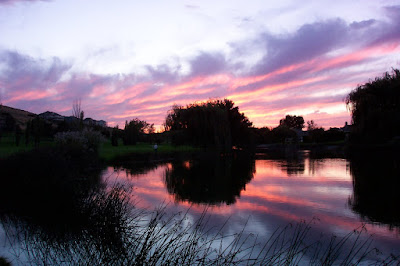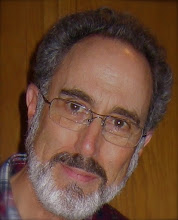
Ust-Kamenogorsk, Kazakhstan, March 2, 1993
A heavy spring rain was slashing across the wide sidewalk as Conte ran from the protection of the hotel entryway to the idling taxi. He was clutching the hood of his jacket with one hand to keep the rain from running down his neck, and reaching out for the taxi door with the other hand, trying to keep his balance on the wet pavement. He could see the driver inside watching him while eating what looked like sunflower seeds from a paper cone.
Although Conte had prevailed upon the taciturn hotel receptionist to call the taxi and instruct the dispatcher where to take him, the driver, a man with pronounced Mongolian features and hair that appeared to have been trimmed around a bowl, turned in his seat and gave Conte a questioning look.
This guy looks like one of the Three Stooges, Conte thought. Who was it? Moe -- Moe with a nasty scar from the edge of his right eye to his earlobe.
“Embankment Street, 158,” Conte said in Russian.
The driver nodded, said “Da,” and shifted into gear. A pair of felt dice wobbled from the rearview mirror as the driver made a U-turn, bumped over a curbing, and headed down the street.
Conte stared ahead, trying to make out signs at cross streets, but the glare off the glistening roadway, the lack of street lights, and the speed at which the taxi was traveling, despite the darkness and wet road, made it nearly impossible. Conte just hoped the driver could see better than he could, but at the moment, it appeared that the driver was more interested in checking him out than in watching the road. Fortunately, traffic was light to nonexistent.
“You are not Russian,” the driver said in heavily accented English.
Conte looked up at the driver’s eyes in the rearview mirror. “No.”
“American?”
“Canadian,” Conte said. That’s what his identity papers said, and he was sticking to it.
The driver made an abrupt turn heading south towards the river, his headlights illuminating a stand of ghostly silver birch. Conte braced himself against the door. “Get there alive, please,” he said.
The driver looked at him and smiled, revealing a mouth sorely in need of preventive dentistry. “Canadians are okay,” he said. “Australians are better. Big drinkers,” he said.
Conte managed a half-hearted smile.
“You are a tourist?”
“Visiting friends,” Conte said. More accurately, meeting a total stranger. In fact, Conte was meeting with a former Russian Navy sub commander who had information about weapons grade uranium allegedly stored at the Ulba Metallurgical Plant, some 20 miles outside the city.
“You like Ust-Kamenogorsk -- is nice city, yes?”
Conte paused before answering. Was the driver serious in thinking that this grimy, polluted, industrial hellhole in northeastern Kazakhstan was beautiful?
The driver noticed Conte’s hesitation. “Was better before Russians come.”
The trees along the wide street thrashed about in the wind and rain and the taxi went into brief skids as the driver down shifted at stop signs and coasted through, rather than stopping.
The driver pointed to the left towards the end of the block, “Is here,” he said.
“Drive past,” Conte said. He saw the driver’s eyes looking at him in the rearview mirror.
Conte surveyed the dingy apartment building as they drove slowly past. His contact was reported to be living in a corner flat on the second floor. There was a light on in the flat.
“Go around the corner,” Conte ordered the driver. “Park here.”
The driver did was he was told, while constantly glancing up into his rearview mirror, clearly suspicious.
Conte reached over the seat and gave the driver one hundred dollars in twenty dollar bills. “Wait for me, and there’ll be another five bills for you,” he said.
The driver wet his fingers and rubbed the money between thumb and forefinger, counted it, and then nodded to Conte.
Conte had to hope that the small fortune he was offering as an incentive to wait would keep the driver there. If it didn’t, he could be in serious trouble.
#

The wide, windswept street was deserted except for the leaves that raced pell-mell along the curbing and flew up in desperate whirls, as if reaching for the branches from which they’d fallen. Conte turned his head away from the bite of the wind and made his way towards the apartment building on the corner of Embankment Street. Every once in a while he glanced up to see if the light in the second-floor flat was still on.
The door to the apartment complex was open and led into a dingy, dimly-lit stairwell to his left and a hallway ahead that seemed to lead to the back of the building. Garbage containers shoved into a niche in the hallway were full to overflowing.
As he started up the stairs, he heard men’s voices coming from the back of the hall. There was an urgency to their hushed exchange. He stopped and listened. They were speaking Russian. He caught parts of the exchange; just partial phrases, but it was enough for him to know that things had gone wrong – terribly wrong. He moved cautiously along the hall towards the sounds.
There, at the back of the building, in an alley bracketed by fallow garden plots, was a van, illuminated by a pale porch light, towards which a man was being pushed and dragged. A broad line of red ran from his forehead to his chin. There was duct tape over his mouth.
Conte could make out four men, two standing near the building smoking, and two dragging the man to the van. When they got to the van, the doors slid open and another man inside the van helped pull the man in. One of the men got in after him and the other got in the passenger seat. The two men, who had been watching, turned and started toward the stairwell.
Conte moved quickly back down the hall towards the front of the building. He brushed by the garbage containers and a can lid went clattering to the concrete. He heard the men shout and then heard their footsteps running his way.
Conte looked right and left. If he went straight out, they’d surely spot him and would not hesitate to shoot. If he went up the stairs, he might be trapped. He might have a chance if he surprised them. He squeezed into the garbage container niche and pressed against the abutment. As he did so, a ragged, but well-fed cat dashed from behind the containers and headed down the hall. He heard one of the men curse the cat and from the yowl the animal made, probably kick it. Then the men stood laughing and cursing some more and Conte moved to the door, left the building, and keeping to the shadows, moved quickly to the place where his taxi was supposed to be.
The taxi was there, but the driver wasn’t in it. Conte looked around desperately and spotted the driver bracing himself against a tree while he peed, trying to aim his stream in the flow of the wind. Conte hissed at him in crude Russian and the driver zipped his fly and sauntered over wiping his hands along the outsides of his pants.
#
Back at the hotel, Conte again told the taxi driver to wait. Inside, he told the receptionist that he’d be leaving early in the morning. He’d paid in advance, in cash, so she just shrugged.
“Leave key in room,” she instructed. And then, seemingly as an afterthought, “Maybe you leave something for maid?”
Conte resisted pointing out that there had been no maid. Instead, he asked where he might find a good nightclub.
The receptionist sighed, as if to say, ‘men,’ and then handed Conte a dog-eared brochure from the desk and pointing to a photo, said, “Aloha, on Solnechnaya Street.”
As he turned to leave, the receptionist thrust out her hand. Conte handed her back the brochure.
When he got to his room, Conte put on all the warm clothes he could get into. He left his suitcase on the chair next to the bed. He removed his multipurpose military pocket tool from his toiletries kit and shoved it in his boot. He left the kit on the grimy sink. He peed, then walked out of the bathroom and looked around. Satisfied that the room still looked lived in, he left.
Conte wasn’t sure how long his erstwhile contact could hold out against his captors’ interrogation techniques, but he gave himself three-to-four hours before they’d extract the information they needed and trace him to his hotel. Ust-Kamenogorsk wasn’t on anyone’s ‘hot travel spots,’ unless by hot, you meant radioactively.
#
It took Conte three days to get out of Kazakhstan and another day and half to get back to the US. Tony Scigliasi did the extraction -- somewhat unusual now that Scigliasi was a station chief. But Conte and Tony had been friends for a while, and it was Tony who planned the Ust mission.
Scigliasi seemed amused by Conte’s description of the ‘nightclub’ the hotel receptionist had recommended. The sad little bar the receptionist had termed a nightclub had no dance floor, no music, and a TV still showing last winter’s snow. Conte had made a local call from the bar phone, and then made his way past the restroom and out the back. He used the pocket map he’d been given in his mission kit to locate his pick-up point near the Irtysh bridge.
When Scigliasi and the two men with him had Conte in their vehicle, a late model Moskvich 412 of indeterminate color, and were barreling west across the bridge, Tony, in the back sat with Conte, asked what Conte had seen during his aborted rendezvous. He had him go over his story several times.
After Conte had described the scene at the apartment building for what seemed like the umpteenth time, Scigliasi asked about the hotel.
“Did you see any evidence that your room had been searched?” Scigliasi asked.
“No,” Conte answered. “It wasn’t even cleaned.”
“Didn’t you have a maid?”
“No maid, no room service, no TV, no seat on the commode,” Conte said.
“And you didn’t notice anyone hanging around the hotel who might’ve been watching you?”
“No. Why? Was my cover blown?”
Scigliasi sat back and stared out his side window momentarily. Then turning to Conte, he said, “Probably not, Dan.”
Conte stared at Scigliasi. “
Probably not?”
Scigliasi shrugged. “Well, our man in Ust was outed, and he’s just one in a long line of our agents who’ve been betrayed. Our KGB friend Kryuchkov seems to be having a field day, and it’s no accident.”
“What’s that mean, Tony?”
“It means we have a Russian mole in the Company, and if our guess is right, you know the son of a bitch.”

.jpg)










































